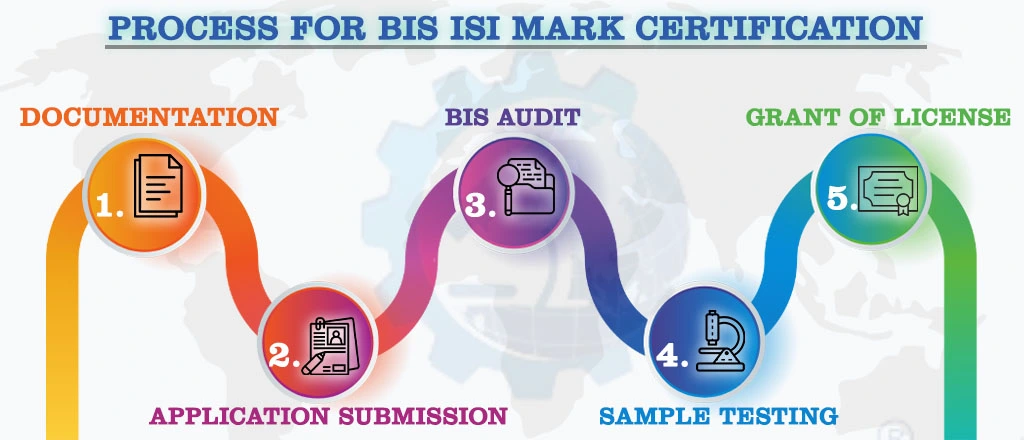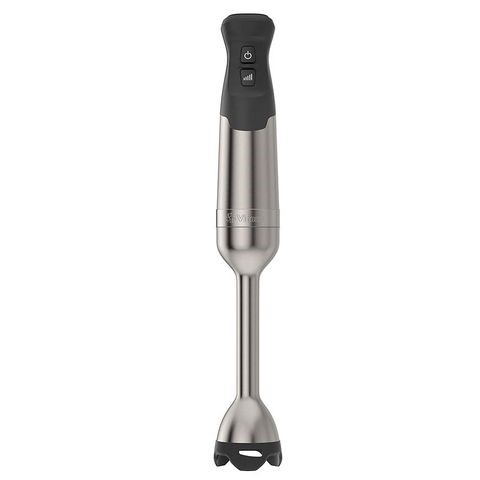BIS Certification for Hand-held Blender IS 302 (Part 2/ Section 14)
A hand-held blender, also known as an immersion blender, is a versatile kitchen appliance designed for blending, pureeing, and emulsifying ingredients directly in a pot or bowl. It is commonly used to make soups, sauces, smoothies, and baby food, offering the convenience of blending without transferring ingredients to a separate container. Its compact design and ease of use make it ideal for quick and efficient blending, while its ability to handle various textures and consistencies makes it a valuable tool for both everyday cooking and more intricate culinary tasks.
Importance of BIS Certification
BIS certification for hand-held blenders is crucial to ensure that the appliance meets the rigorous quality and safety standards set by the Bureau of Indian Standards (BIS). This certification verifies that the blender adheres to specifications for electrical safety, performance, and durability, which are essential for safe and effective operation. Compliance with BIS standards helps prevent potential hazards such as electrical failures, overheating, or mechanical issues, ensuring the appliance performs reliably over time. BIS certification also supports consumer confidence, fosters regulatory compliance, and promotes best practices in manufacturing, guaranteeing that hand-held blenders meet high-quality benchmarks necessary for safe and efficient kitchen use.
Indian Standard IS 302 (Part 2/ Section 14)
On 6th March 2024, the Ministry of Commerce and Industry (Department of Industrial Policy and Promotion) issued a Quality Control Order (QCO) mandating that hand-held blenders must adhere to Indian Standard IS 302 (Part 2/Section 14). This standard outlines critical safety and performance requirements for electrical appliances, ensuring that hand-held blenders meet necessary benchmarks for safety, durability, and efficient operation. Compliance with IS 302 (Part 2/Section 14) guarantees that the blenders are manufactured to high-quality standards, minimizing risks and enhancing consumer confidence in their safe and effective use.
Key highlights
| Product Name | Hand-held Blender IS 302 (Part 2/ Section 14) |
| Applicable Indian Standard | IS 302 (Part 2/ Section 14) |
| Applicable Certification Scheme | Product Certification Scheme (ISI Mark Scheme) Scheme 1 - Schedule 2 |
| Compliance Requirement | Mandatory |
| QCO Link | Hand-held Blender IS 302 (Part 2/ Section 14) |
| Scope as per Standard | # |

NOTE:
For Detailed Information about the Procedure for BIS ISI Certification, Visit :
Timeline for BIS Certification
The approximate timeline to obtain BIS certification for Hand-held Blender to use the ISI mark as per IS 302 (Part 2/Section 14) is as follows:
- For Indian Manufacturers (Standard Timeframe – 30 days)
- For Foreign Manufacturers (Standard Timeframe – 180 days)
Conclusion:
In conclusion, BIS certification for hand-held blenders, as mandated by Indian Standard IS 302 (Part 2/Section 14), is essential for ensuring the appliance meets stringent quality and safety standards. This certification assures consumers that hand-held blenders are designed to be safe, reliable, and efficient for everyday kitchen tasks. By adhering to these standards, manufacturers can offer products that minimize risks, enhance performance, and foster consumer confidence. The BIS certification process also supports regulatory compliance and promotes industry best practices, contributing to the overall safety and effectiveness of hand-held blenders in the market.
For more updates and detailed procedures, stay connected with Aleph INDIA and ensure your products are always compliant and top-quality.
International Audits & Participation
Testimonials
BIS REGISTRATION FOR ELECTRONIC & IT PRODUCT
In the era of globalization, world trade is growing rapidly and henceforth, Manufacturing and Import/Export businesses are also growing drastically...View More
BIS CERTIFICATE FOR FOREIGN MANUFACTURER
The Economy of India-the fastest developing economy on the globe with the capabilities that help it matches up with the biggest international...View More
PRODUCT CERTIFICATION SCHEME (ISI MARK) FOR DOMESTIC MANUFACTURERS
Anything a person buys from food to cars, clothes to electronics, branded to unnamed products there is always a question that wanders in one’s...View More
WIRELESS PLANNING AND COORDINATION (WPC)
WPC: Wireless means communication done from one point to another point without the wires and cables. Electromagnetic waves carry the ...View More
BUREAU OF ENERGY EFFICIENCY (BEE) CERTIFICATE
BEE CERTIFICATE: Energy is the future, and its conservation is the way of the bright future. Everyone claims the environment is important...View More
E-WASTE MANAGEMENT
E-waste is one of the world's fastest-growing trash streams. We currently manufacture almost 50 million tones of it each year...View More
View All Services
Request a call back.
Would you like to speak to one of our Senior Technical advisers over the phone? Just submit your details and we’ll be in touch shortly. You can also email us if you would prefer.






























